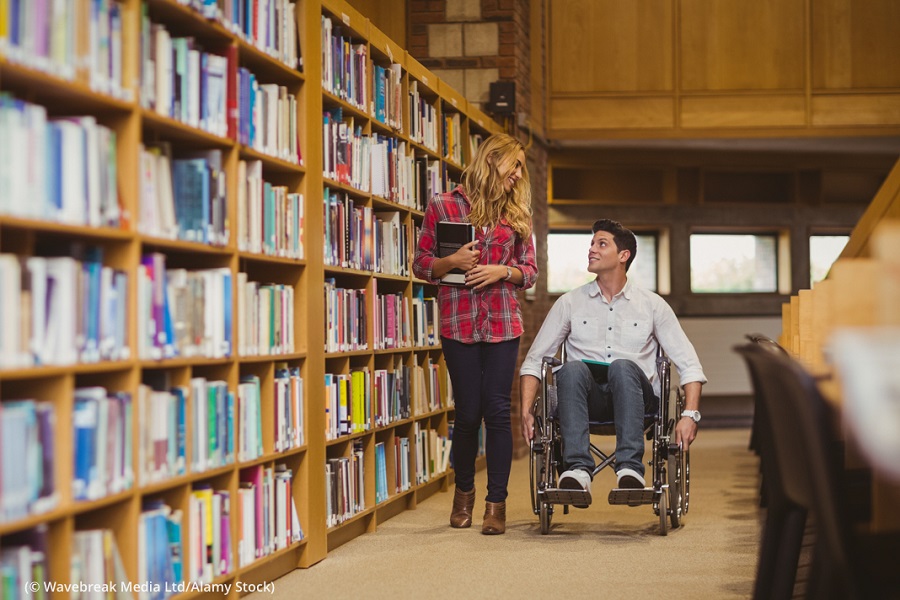Students with disabilities who are thinking of studying in the United States may be surprised to learn where they can go and what they can achieve at American universities.
“International students should learn about different accommodations available to them at their American university,” says Elizabeth Hamblet, a national expert in college transitions for students with disabilities. For example, they might seek permission to record lectures or to take extra time on exams.
There are entire institutions dedicated to serving students with disabilities: Gallaudet University in Washington is the world’s only deaf and hard-of-hearing university; Landmark College in Vermont was founded for students with dyslexia but is now a pioneer in college-level education for students with all learning disabilities, attention-deficit disorder and autism spectrum disorder.

(© Wavebreak Media Ltd./Alamy Stock)
But Monica Malhotra of Mobility International doesn’t want students to limit their search. “A lot of international students begin with the disability first, but they should put that aside,” Malhotra says. “The reason they’re coming to the United States is to have access to an academic program — focus on that.”
At any U.S. college or university, students with disabilities will have access to services. Mobility International USA is working to make it easier for students from other countries to find out about them by connecting international-student advisers with disability services at colleges across the country.
“We still get calls from students who are wheelchair users asking what school they can attend. The answer is any school,” says Malhotra.
There are offices dedicated to serving students with disabilities on every campus: from large public state universities, such as the University of Wisconsin in Madison, to small, private liberal-arts colleges, such as Mount Holyoke College in Massachusetts.

Elizabeth Hamblet tells students not to count themselves out of America’s top-tier schools like Columbia University, pictured here. (© Education Images/UIG/Getty Images)
Most important, students will have access to disability services no matter what school or program they choose. American colleges and universities are required by law to accommodate students with disabilities. “It might not be a big office, but there has to be someone on campus dedicated to this stuff,” Hamblet says.
Once accepted into their academic program, students will need to register with the disability services office, because in the United States, schools don’t ask students if they need accommodation. While this may seem unusual or uncomfortable to some students who are used to being offered assistance without having to ask, Malhotra sees it as an opportunity for students to learn from their American experience. “In the U.S., people with the disability are their own best advocates,” according to Malhotra.
“Each individual with a disability knows best what they want and what they need,” she says.
A version of this article was previously published on October 4, 2017.
Banner image: Students at Gallaudet University, the only university in the world tailored for deaf and hard-of-hearing students. (© Ricky Carioti/Washington Post/Getty Images)







COMMENTS2
Very nice attempt. I am a person with developmental disabilities. Japanese universities are trying to support students with disabilities by “reasonable accommodation”.
However, there is a strong tendency to think that if possible, they should conform to the general
There is a strong tendency to think that students with disabilities should conform to the general public, which places a burden on students who cannot keep up.
The word “inclusive” sounds good, but it is an old-fashioned state of oppression.
Universities and other educational institutions should make the educational process more inclusive for students with disabilities and illnesses.
We cannot safely access education.
grate! I am Japanese and after I entered college ,I got mentall illness.about 30 years ago.I managed to graduate. hopefully the challenged students spend happy campus life and consequent long life.
LEAVE A COMMENT
TOP